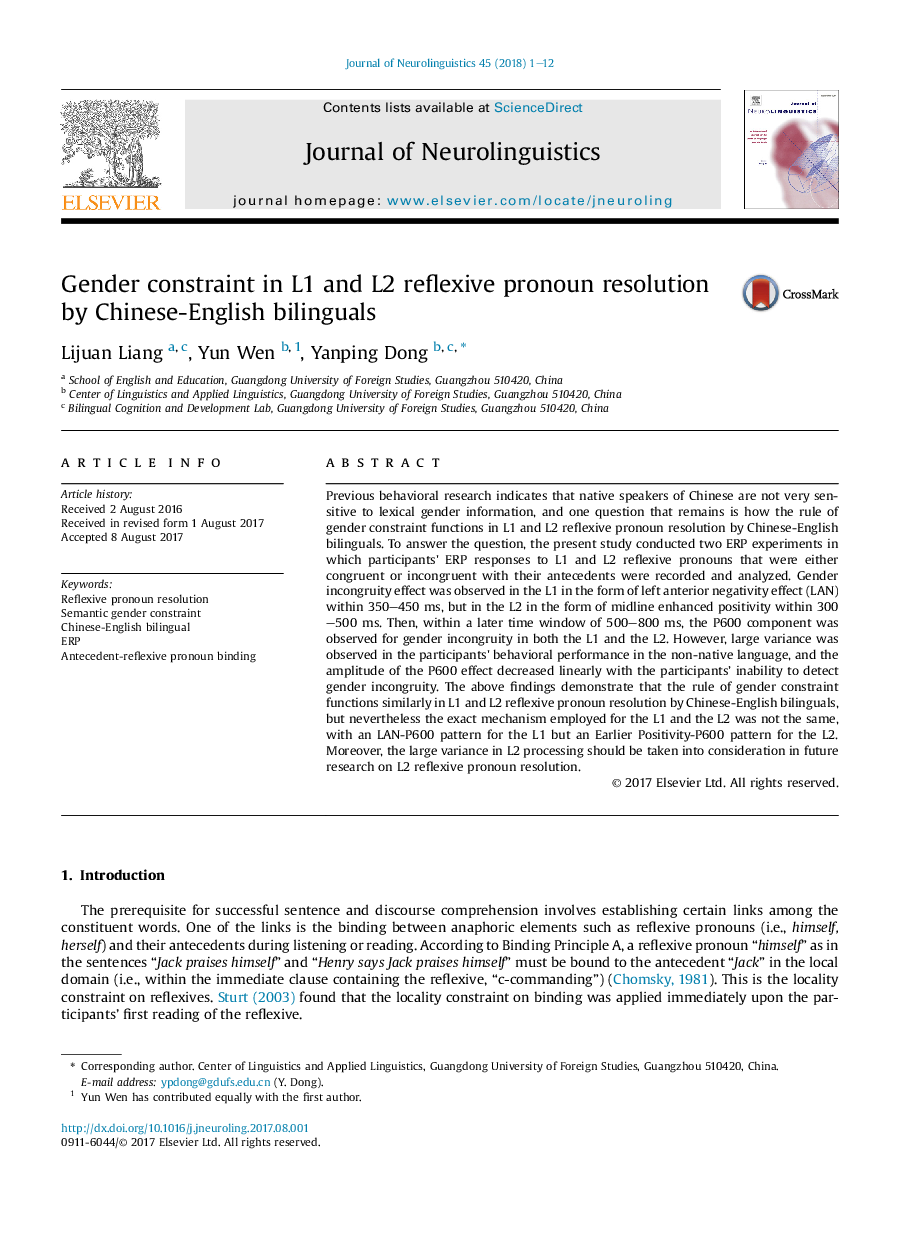| Article ID | Journal | Published Year | Pages | File Type |
|---|---|---|---|---|
| 5039189 | Journal of Neurolinguistics | 2018 | 12 Pages |
â¢An LAN-P600 pattern was observed for gender incongruity in L1.â¢An Earlier Positivity-P600 pattern was observed for gender incongruity in L2.â¢The P600 effect decreased as behavioral accuracy lowered when processing L2.â¢Gender constraint was applied in reflexive pronoun resolution in both L1 and L2.â¢There existed significant variance when processing L2 gender congruity.
Previous behavioral research indicates that native speakers of Chinese are not very sensitive to lexical gender information, and one question that remains is how the rule of gender constraint functions in L1 and L2 reflexive pronoun resolution by Chinese-English bilinguals. To answer the question, the present study conducted two ERP experiments in which participants' ERP responses to L1 and L2 reflexive pronouns that were either congruent or incongruent with their antecedents were recorded and analyzed. Gender incongruity effect was observed in the L1 in the form of left anterior negativity effect (LAN) within 350-450 ms, but in the L2 in the form of midline enhanced positivity within 300-500 ms. Then, within a later time window of 500-800 ms, the P600 component was observed for gender incongruity in both the L1 and the L2. However, large variance was observed in the participants' behavioral performance in the non-native language, and the amplitude of the P600 effect decreased linearly with the participants' inability to detect gender incongruity. The above findings demonstrate that the rule of gender constraint functions similarly in L1 and L2 reflexive pronoun resolution by Chinese-English bilinguals, but nevertheless the exact mechanism employed for the L1 and the L2 was not the same, with an LAN-P600 pattern for the L1 but an Earlier Positivity-P600 pattern for the L2. Moreover, the large variance in L2 processing should be taken into consideration in future research on L2 reflexive pronoun resolution.
